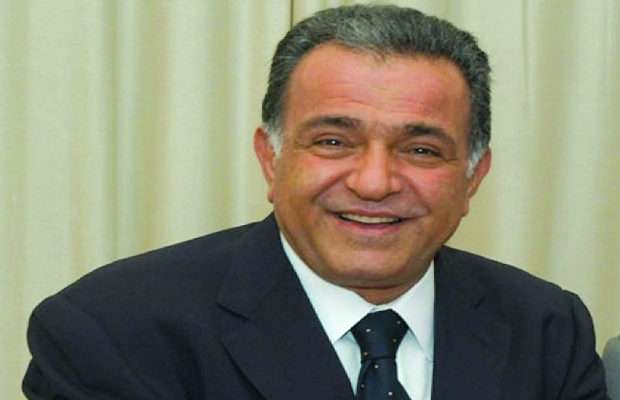
File photo of Lebanese deputy parliamentary speaker Farid Makari. (Asharq Al-Awsat)
Beirut, Asharq Al-Awsat—The presidential vacuum that has endured in Lebanon since former president Michel Suleiman left office on May 25 is being met with general “apathy” by lawmakers tasked with electing a new president, according to deputy parliamentary speaker Farid Makari.
In a broad-ranging interview with Asharq Al-Awsat, Makari—who is a member of the March 14 Alliance that is backing a Samir Geagea presidential bid—said: “There is a noticeable apathy from Lebanese leaders towards the presidential vacuum,” adding that it “may lead to further delays in electing a president and to the possibility of parliamentary elections taking place” before a new head of state can be agreed upon.
Lebanese parliamentary elections are scheduled for November this year. Lebanon had been seeking to push through a new electoral law prior to the elections, but this looks increasingly unlikely amid the ongoing presidential vacuum.
Parliament last year extended its own mandate after lawmakers failed to agree on a new electoral law, and Lebanon could seek to hold parliamentary elections according to a 1960 electoral law if a new law cannot be agreed. That 1960 law, which was used in the 2009 elections, has been the subject of controversy, with groups from across Lebanon’s political divide rejecting its distribution of electoral districts.
Speaking to Asharq Al-Awsat, Makari laid the blame for the ongoing failure to elect a new president squarely at the feet of Lebanon’s Christian community. “Christians may rule themselves out of the legislative role in parliament following their failure to play their role in electing a president,” Makari said.
He specifically cited the decision of Free Patriotic Movement leader Michel Aoun to boycott electoral sessions. Aoun is the presumptive presidential candidate of the Hezbollah-led March 8 Alliance.
Makari denied that the nomination of Samir Geagea for the presidency was an issue of intransigence, adding that the Lebanese Forces leader always knew that his chances of becoming president were slim. “The situation would not be different whether Geagea or anyone else was the March 14 Alliance’s candidate, because the idea of a March 14 Alliance candidate is rejected by the other side [the March 8 Alliance].”
The March 8 Alliance has boycotted a number of parliamentary sessions, specifying its rejection of Samir Geagea, whose actions during the Lebanese civil war are seen as a stumbling block to his bid to be a “consensus” candidate.
Samir Geagea has also come out this week to blame Aoun for Lebanon’s presidential vacuum, telling Lebanon’s Daily Star: “On the presidency, cooperation stopped from the first moment because the Free Patriotic Movement came with one proposal—either we support General Aoun or they are not ready to discuss any other option.”
“They are, of course, not ready to support me and I don’t find that strange. But beyond that they are not ready for any proposal—either we support General Aoun or nothing,” he added.
Makari called on Lebanon’s Christian community “to agree on a candidate that can be accepted by all and go to parliament to elect him,” warning that failure to do so would only prolong a potentially dangerous presidential vacuum. “The election of a president is not a priority for the international community today; security and stability are the priority,” he told Asharq Al-Awsat.
